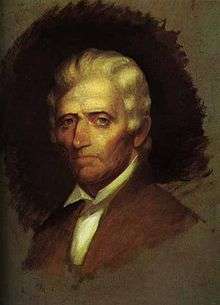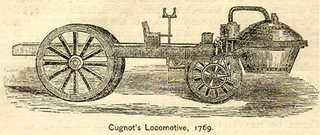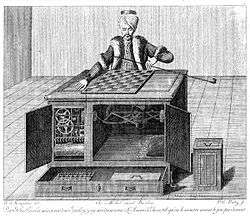1769
| Millennium: | 2nd millennium |
|---|---|
| Centuries: | 17th century · 18th century · 19th century |
| Decades: | 1730s · 1740s · 1750s · 1760s · 1770s · 1780s · 1790s |
| Years: | 1766 · 1767 · 1768 · 1769 · 1770 · 1771 · 1772 |
| 1769 by topic: | |
| Arts and Sciences | |
| Archaeology – Architecture – Art – Literature (Poetry) – Music – Science | |
| Countries | |
| Austria – Canada –Denmark – France – Great Britain – Ireland – Norway – Scotland –Sweden – | |
| Lists of leaders | |
| Colonial governors – State leaders | |
| Birth and death categories | |
| Births – Deaths | |
| Establishments and disestablishments categories | |
| Establishments – Disestablishments | |
| Works category | |
| Works | |
| Gregorian calendar | 1769 MDCCLXIX |
| Ab urbe condita | 2522 |
| Armenian calendar | 1218 ԹՎ ՌՄԺԸ |
| Assyrian calendar | 6519 |
| Bengali calendar | 1176 |
| Berber calendar | 2719 |
| British Regnal year | 9 Geo. 3 – 10 Geo. 3 |
| Buddhist calendar | 2313 |
| Burmese calendar | 1131 |
| Byzantine calendar | 7277–7278 |
| Chinese calendar | 戊子年 (Earth Rat) 4465 or 4405 — to — 己丑年 (Earth Ox) 4466 or 4406 |
| Coptic calendar | 1485–1486 |
| Discordian calendar | 2935 |
| Ethiopian calendar | 1761–1762 |
| Hebrew calendar | 5529–5530 |
| Hindu calendars | |
| - Vikram Samvat | 1825–1826 |
| - Shaka Samvat | 1690–1691 |
| - Kali Yuga | 4869–4870 |
| Holocene calendar | 11769 |
| Igbo calendar | 769–770 |
| Iranian calendar | 1147–1148 |
| Islamic calendar | 1182–1183 |
| Japanese calendar | Meiwa 6 (明和6年) |
| Javanese calendar | 1694–1695 |
| Julian calendar | Gregorian minus 11 days |
| Korean calendar | 4102 |
| Minguo calendar | 143 before ROC 民前143年 |
| Nanakshahi calendar | 301 |
| Thai solar calendar | 2311–2312 |
| Wikimedia Commons has media related to 1769. |
1769 (MDCCLXIX) was a common year starting on Sunday (dominical letter A) of the Gregorian calendar and a common year starting on Thursday (dominical letter D) of the Julian calendar, the 1769th year of the Common Era (CE) and Anno Domini (AD) designations, the 769th year of the 2nd millennium, the 69th year of the 18th century, and the 10th and last year of the 1760s decade. As of the start of 1769, the Gregorian calendar was 11 days ahead of the Julian calendar, which remained in localized use until 1918.
Events
January–June
- March 16 – Louis Antoine de Bougainville returns to Saint-Malo following a three-year circumnavigation of the world with the ships La Boudeuse and Étoile, with the loss of only seven out of 330 men; among the members of the expedition was Jeanne Baré, the first woman known to have circumnavigated the globe. She returned to France some time after Bougainville and his ships.
- April 13 – James Cook arrives in Tahiti on the ship HM Bark Endeavour, preparing for the 1769 Transit of Venus observed from Tahiti on June 3. After the voyage, the data is found to be inaccurate in determining the distance between the Sun and Earth.
- April 29 – James Watt is granted a British patent for "A method of lessening the consumption of steam in steam engines" – the separate condenser,[1] a key improvement (first devised by Watt in 1765) which stimulates the Industrial Revolution.[2]
- May 9 – France conquers Corsica.
- May 14 – Charles III of Spain sends Spanish missionaries, who found California missions in San Diego, Santa Barbara, San Francisco and Monterey and begin the settlement of California.
- May 19 – Pope Clement XIV succeeds Pope Clement XIII as the 249th pope.
- June 3 (O.S.) – A transit of Venus is followed five hours later by a total solar eclipse, the shortest such interval in historical times. The transit is viewed by King George III of Great Britain at the Kew Observatory.

- June 7 – Frontiersman Daniel Boone first begins to explore modern-day Kentucky.
July–December

October 23: Cugnot's steam-wagon.
- July 3 – Richard Arkwright patents a spinning frame in England able to weave fabric mechanically.[3]
- July 16 – Father Junípero Serra founds Mission San Diego de Alcalá, the first of the 21 California missions.
- August 3 – The party of Gaspar de Portolà becomes the first white group to set foot in the area now known as Santa Monica, California.
- August 18 – the Brescia Explosion; the city of Brescia, Italy is devastated when the Church of San Nazaro is struck by lightning. The resulting fire ignites 200,000 lb (90,000 kg) of gunpowder being stored there, causing a massive explosion which destroys 1/6 of the city and kills 3,000 people. The disaster prompts the Roman Catholic Church to abandon their religious objection to using lightning rods to protect their property.
- September – Massive droughts in Bengal, which lead to the Bengal famine of 1770 in which ten million people, a third of the population, will die, the worst natural disaster in human history (in terms of lives lost). The Maharajah of Mysore forces the British to agree a treaty of mutual assistance in view of the famine, but the British East India Company increases its demands on the Bengali people to keep profits up.
- September 6–9 – David Garrick holds a Shakespeare Jubilee festival at Stratford-upon-Avon in England.
- September 10 – Russo-Turkish War (1768–74): Russian forces take the Ottoman fortress of Chocim in Bukovina.
- October 7– James Cook lands in New Zealand at Poverty Bay.
- October 23 – Nicolas-Joseph Cugnot demonstrates a steam-powered artillery tractor (see drawing) in France.

"Mechanical Turk" chess machine.
- December 13
- Dartmouth College in Hanover, New Hampshire is established as John Wentworth, the Royal Governor, conveys a charter from King George III of England.
- (or December 22) – Sino-Burmese War (1765–69) ended by truce.
Date unknown
- Authorized King James Version of the Bible in the Oxford standard text edited by Benjamin Blayney published in England.
Births
- January 1 – Marie Lachapelle, French obstetrician (d. 1821)
- Jane Marcet, British science writer (d. 1858)
- January 10 – Michel Ney, French marshal (d. 1815)
- March 1 – François Séverin Marceau-Desgraviers, French general (d. 1796)
- March 4 – Muhammad Ali of Egypt, Egyptian ruler (d. 1849)
- March 10 – Joseph Williamson, English philanthropist and builder of the Williamson Tunnels (d. 1840)
- March 23 – William Smith, English geologist and cartographer (d. 1839)
- March 29 – Jean-de-Dieu Soult, French marshal (d. 1851)
- June 5 – Marianne Kirchgessner, German musician (d. 1808)
- April 3 – Christian Günther von Bernstorff, Danish and Prussian statesman and diplomat (d. 1835)
- April 9 – Jakob Heinrich Laspeyres, German lepidopterist (d. 1809)
- April 11 – Jean Lannes, French marshal (d. 1809)
- April 13 – Thomas Lawrence, English painter (d. 1830)
- April 14 – Barthélemy Catherine Joubert, French general (d. 1799)
- May 1 – Arthur Wellesley, 1st Duke of Wellington, British general and Prime Minister of the United Kingdom (d. 1852)
- May 6 – Ferdinand III, Grand Duke of Tuscany (d. 1824)
- June 18 – Robert Stewart, Viscount Castlereagh, British statesman, diplomat, and soldier (d. 1822)
- August 15 – Napoleon Bonaparte, Emperor of the French (d. 1821)
- August 23 – Georges Cuvier, French naturalist and zoologist; known as the "Father of Paleontology" (d. 1832)
- September 14 – Karl Salomo Zachariae von Lingenthal, German jurist (d. 1843)
- October 6 – Isaac Brock, British general and administrator (d. 1812)
- December 13 – James Scarlett Abinger, English judge (d. 1844)
- December 26 – Ernst Moritz Arndt, German writer and poet (d. 1860)
- date unknown
- James Dadford, English canal engineer
- John Bellingham, assassin of UK Prime Minister Spencer Perceval (d. 1812)
- Howqua, Chinese merchant (d. 1843)
- probable
- John Henry Colclough, Irish revolutionary (d. 1798)
Deaths
- February 2 – Pope Clement XIII (b. 1693)
- March 28 – Johann Friedrich Endersch, cartographer (b. 1705)
- April 20 – Chief Pontiac, Ottawa chief (murdered) (b. c. 1719)
- June 1 – Edward Holyoke, American President of Harvard University (b. 1689)
- August 2 – Daniel Finch, 8th Earl of Winchilsea, English politician (b. 1689)
- August 29 – Edmond Hoyle, English game expert (b. 1672)
- September 22 – Antonio Genovesi, Italian philosopher (b. 1712)
- November 23 – Constantine Mavrocordatos, Prince of Wallachia and Prince of Moldavia (b. 1711)
- November 27 – Kamo no Mabuchi, Japanese poet and philologist (b. 1697)
- December 13 – Christian Fürchtegott Gellert, German poet (b. 1715)
- December 30 – Nicholas Taaffe, 6th Viscount Taaffe, Austrian soldier (b. 1685)
- date unknown – Suremphaa, King of Assam
References
Further reading
- John Blair; J. Willoughby Rosse (1856). "1769". Blair's Chronological Tables. London: H.G. Bohn – via Hathi Trust.
This article is issued from Wikipedia - version of the 10/22/2016. The text is available under the Creative Commons Attribution/Share Alike but additional terms may apply for the media files.
